George Mason University President Gregory Washington has announced the recipients of the 2024 Presidential Awards for Faculty Excellence, honoring 13 Mason faculty members for their work on behalf of the university, students, and the broader community.
This is the eighth year for the Presidential Awards for Faculty Excellence, selected by a review committee that includes prior award recipients and senior leaders from relevant areas. Recipients will be honored at a reception May 7.
The awards honor faculty with up to six years of service, six to 12 years of service, and more than 12 years of service.
“George Mason University faculty are at the forefront of their fields and their work is an overarching reason why Mason is considered one of the country’s top 50 public universities,” Mason President Gregory Washington said. “We take great pride in honoring our faculty for their transcendent work and impact in teaching, research, social impact, and diversity and inclusion here at the largest public research university in the Commonwealth of Virginia.”
The John Toups Presidential Medal for Excellence in Teaching is presented to a faculty member whose teaching inspires and stimulates students in the finest tradition of higher education.
The Beck Family Presidential Medal for Excellence in Research recognizes extraordinary contributions by members of the Mason faculty to consequential research of high impact. The award is presented annually to a Mason faculty member whose research represents groundbreaking advances in their field.
The United Bank Presidential Medal for Excellence in Diversity and Inclusion recognizes extraordinary contributions in teaching, research, scholarship, creative works, or service that directly advances diversity and inclusion inside and outside the Mason community.
The Earle C. Williams Presidential Medal for Excellence in Social Impact is presented to a faculty member in any discipline who makes extraordinary efforts to use their scholarship to solve real-world problems.
The complete list of 2024 honorees is below. See prior recipients for 2017 to 2023.
Faculty Excellence in Teaching
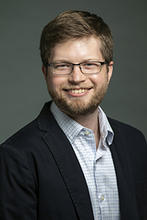
Dominic White is an instructional assistant professor in the Department of Computational and Data Sciences in the College of Science. A computational paleontologist, White joined the Mason faculty in 2019 and serves as the course coordinator for CDS 101 and 102 Introduction to Computational and Data Sciences, a Mason Core course in the natural sciences. As course coordinator, he leads and supports a team of 15 faculty and teaching assistants who teach the course.
White has led a number of successful pedagogical experiments that have changed his approach to the introductory course. In particular, he has taken advantage of the capabilities of online learning platforms to make the course more interactive to encourage student engagement. Enrollments for the course have tripled in the four years White has been teaching it.
White also developed an innovative course, CDS 490 Data Science in Practice, in which undergraduate students worked with the U.S. Census Bureau on semester-long projects using census data, which they then presented at a Census Bureau conference.
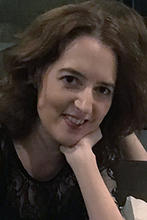
Rachel Lewis is an instructional associate professor in Women and Gender Studies and director of undergraduate and graduate programs. She joined the faculty in the College of Humanities and Social Sciences (CHSS) in 2012.
Lewis has taken an outsized role in curricular development for the Women and Gender Studies Program and has designed and taught 17 different courses over the past 10 years. Given the small number of program faculty members, her initiative has been crucial to the program’s ability to offer a wide array of courses. Lewis’s courses are interdisciplinary and transnational in scope, focusing on issues relating to sexuality, race, immigration, human and animal rights, ecology, and disability.
Lewis is extraordinarily active as a mentor to both graduate and undergraduate students. She has chaired 25 master’s degree student committees in five different programs and has served on the committees for nearly 30 more students at either the master’s degree or doctoral level. Lewis plays a central role in graduate mentorship across many humanities and social science fields, particularly for students whose research relates to issues of gender and sexuality.
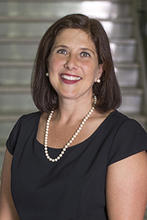
Lisa Gring-Pemble an associate professor in the Costello College of Business, is the recipient of The John Toups Presidential Medal for Faculty Excellence in Teaching. Her teaching fields include innovation and entrepreneurship, rhetoric, political communication, and public policy.
Every semester, Gring-Pemble meets with each of her students individually, building various in-term assessments and check-ins into her courses so that she can monitor their engagement and adapt accordingly, and guides each student toward their goals. She also creates new learning opportunities for her students, usually in the form of experiential learning. She has taken her students to New Hampshire to meet presidential candidates and observe the electoral process in person, organized study-abroad trips, and brought students with her to sit in on congressional debates and U.S. Supreme Court hearings.
Gring-Pemble’s innovative contributions often serve Mason’s goals of sustainability and inclusive excellence. She was cofounder of Mason’s Honey Bee Initiative and the founding co-executive director of the Business for a Better World Center. She is a board member of the Institute for a Sustainable Earth and serves on the advisory board of UndocuMason.
In 2020, Gring-Pemble codeveloped the Impact Fellows Program, a two-year cohort-based program for first-time, first-year students from groups underrepresented in the business world.
Faculty Excellence in Research
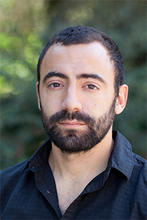
Antonios Anastasopoulos is an assistant professor in the Department of Computer Science in the College of Engineering and Computing. His research is in the field of natural language processing, which seeks to enable computers to understand text and spoken words.
Anastasopoulos has led projects that aim to make language technologies work for populations that are underserved by currently available tools—for example, by enabling computers to handle input from non-native language speakers or nonstandard dialects. He also has led interdisciplinary projects with humanists that seek to document endangered languages. He has, for example, developed tools that can perform optical character recognition on endangered languages so that currently inaccessible texts will be made available for scholarly analysis.
Since joining Mason in 2020, his publications have been cited more than 2,700 times. The interdisciplinary nature of his research is reflected in the diverse range of grants he has received, from the National Science Foundation to the National Endowment for the Humanities, Google, Amazon, Meta (Facebook), the Virginia Research Investment Fund, and the Commonwealth Cyber Initiative.
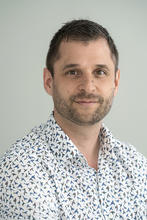
Rémi Veneziano is an assistant professor in Department of Bioengineering, having joined the College of Engineering and Computing in 2018. Much of his research has been in DNA origami, which involves the folding of DNA to create 2D and 3D objects at nanoscale, thus enabling the construction of functional nanomaterials. Veneziano has also led the effort to apply this research to the creation of new technologies. In recognition of his innovative approaches, he received a National Institutes of Health (NIH) Trailblazer Award.
Veneziano has 10 patents or patent applications, including one that has been licensed, and he received seed funding from the National Science Foundation (NSF) and the Virginia Innovation Partnership Corporation to start a new venture to commercialize technologies developed from his research. He has published his research widely, with 32 refereed publications, including one in the prestigious journal Science. His research has been supported by eight grants, from agencies such as NSF, National Institutes of Health, and the U.S. Department of Defense.
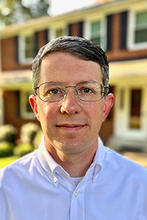
Lincoln Mullen is an associate professor in the Department of History and Art History in the College of Humanities and Social Sciences. He joined the Mason faculty in 2014.
As a historian of American religion and the 19th-century United States, his first book, The Chance of Salvation: A History of Conversion in America, published by Harvard University Press in 2017, won a Best Book prize from the American Academy of Religion. His second major project in this field was America’s Public Bible, published by Stanford University Press in 2023. This interactive scholarly work uncovers the history of the Bible in the 19th- and early 20th-century United States using computational methods.
Mullen is also executive director of the Roy Rosenzweig Center for History and New Media[PAW4] , the oldest and largest digital humanities center in the country. He has directed nine major collaborative digital projects and created several new software tools to examine or visualize historical datasets. One example is Mapping Early American Elections, which turned electoral returns from the first several decades of U.S. history into a dataset that could be analyzed and mapped using data visualization tools.
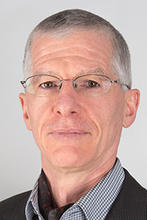
Rainald Löhner, professor in the Department of Physics and Astronomy in the College of Science and director of the Center for Computational Fluid Dynamics, is the recipient of The Beck Family Presidential Medal for Faculty Excellence in Research.
He has been a pioneer in developing computational models for solving fluid flow problems. His algorithms and techniques have been applied to solve such challenges as air and underwater explosions, ship and submarine hydrodynamics, hemodynamics of vascular diseases, contaminant and pathogen transport, and pedestrian movement and crowd control. Löhner’s recent efforts to apply his work in computational fluid dynamics to the problem of COVID-19 transport received national attention from major media outlets.
Löhner has nearly 900 research publications, including around 200 peer-reviewed articles in journals from a variety of disciplines. He is also the author of a textbook on applied computational fluid dynamics.
Löhner has given more than 150 invited talks, many of them abroad, and serves on the editorial board of six international journals. He has secured grants from several major organizations, including NASA, NSF, NIH, the Defense Threat Reduction Agency, the Office of Naval Research, and the Air Force Office of Scientific Research. In 2023, he was recognized by Stanford University as one of the world's top 2% of scientists.
Faculty Excellence in Diversity and Inclusion
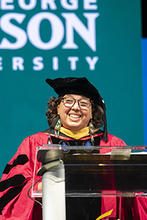
Gabrielle Tayac is an associate professor and public historian who joined the faculty in the Department of History and Art History in CHSS in 2020. Prior to that, she served as an educator, historian, and curator at the Smithsonian National Museum of the American Indian, where she became a leading figure in the development of community curation, a new inclusive methodology for studying and representing the history of underrepresented groups. This methodology combines archival research with oral history and other forms of community engagement.
Tayac has created six new courses that teach community-engaged public history methods to undergraduate and graduate students. In each course, she builds in experiential learning opportunities in which her students interact with knowledge holders from the marginalized communities whose history they are studying.
With funding from the Virginia Humanities Foundation, Tayac led doctoral students in an oral history project with Barrios Unidos, a grassroots anti-violence organization in Northern Virginia that developed Indigenous cultural practices as a healing modality for gang-involved youth.
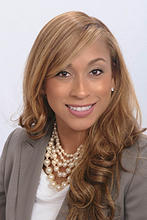
Kelly Knight joined the Department of Forensic Science in 2013 as an instructional associate professor in the College of Science. Prior to Mason, she worked as a forensic scientist, first as a research associate and laboratory manager, and then as a forensic DNA analyst for several years with the Maryland State Police’s Forensic Sciences Division.
In 2019, Knight led the effort to create the first forensic DNA laboratory on campus, where she is the principal investigator, in part based on the goal of providing hands-on learning to erase gender and ethnic gaps in STEM degree achievement. In 2021, she participated in an NSF-funded eight-week course called the Inclusive STEM Teaching Project. She and two other Mason faculty members completed the facilitator workshop training necessary to lead a group of Mason STEM faculty through the same course.
Knight also serves as the faculty advisor for several student groups, including the Women of Color in STEM. More than a decade ago, she cofounded the Females of Color and those Underrepresented in STEM (FOCUS) middle school camp and the FOCUS High School Academy.
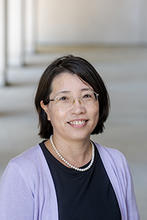
Xiaomei Cai, associate chair and associate professor in the Department of Communication in CHSS, is the recipient of The United Bank Presidential Medal for Excellence in Diversity and Inclusion. At Mason since 2006, her research and scholarship focus on the well-being of vulnerable populations, especially with respect to children’s privacy on the internet and health prevention among adolescents.
Cai’s leadership of inclusive excellence causes was motivated, in part, by the surge of anti-Asian discrimination during the COVID-19 pandemic. Cai played a lead role in developing the CHSS Network, a faculty mentoring program that reaches all faculty but was created in part to ensure that underrepresented faculty members receive adequate guidance and support.
Cai has also been instrumental in the development of the college’s inclusive faculty search protocol, which resulted in a significant increase in the number of minoritized faculty at the college, as well as in the number of faculty whose scholarly expertise and research reflects broader, more diverse interests. Within the Department of Communication, she has aligned the departmental goals with college-wide inclusive excellence efforts.
Cai has recently taken on the program coordinator role for the Asian, Asian American, and Pacific Islander Affinity Group . She has partnered with organizations such as the Chinese American Parents Association of Northern Virginia to advance justice-related causes.
Faculty Excellence in Social Impact
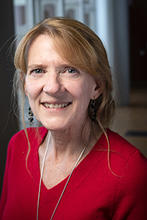
Melissa Ainsworth is an instructional assistant professor in the field of special education in the College of Education and Human Development. She taught K-12 students with severe disabilities in Fairfax County Public Schools for many years and she continued to do so while earning her doctorate at Mason in 2014 and teaching part-time at the university level. She began her full-time faculty appointment in 2019.
Ainsworth’s social impact is evidenced through her deep commitment to her students, who are themselves teachers in the field of special education, and how she provides guidance and support for teachers of students with severe disabilities. Motivated by her own research findings that such teachers often feel isolated within their schools and experience high levels of burnout and turnover, she has created a community of practice group, REFLECT GMU, for Mason alumni who teach students with severe disabilities. She has also formed an online community, KEEP GMU, that serves as a discussion group and resource repository for program alumni who work with students with severe disabilities.
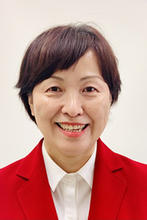
Eunmee Lee joined Mason as a full-time faculty member for the INTO Mason program in 2015. In 2016, she joined the faculty at Mason Korea, where she is currently an instructional associate professor and teaches English for academic purposes[PAW8] . Lee is also the founder and director of Mason Korea’s Academic Resource Center.
Lee has led two major initiatives that have had a substantial impact upon the Incheon community and its relationship with Mason and other universities located at Incheon Global Campus. The first is Korea’s Citizen Life College, a program that offers Incheon citizens free, noncredit lifelong learning courses taught mostly by Mason Korea faculty. The program is designed to reach the people of “Old Incheon,” a mainly working-class community. The program provides access to a Mason education to people who could not otherwise afford it.
Lee has also led a project to support Incheon’s K-12 school system by creating programs for Mason Korea students and faculty to teach and mentor local middle and high school students. She has also organized in-service training programs for K-12 schools and teachers in the city.
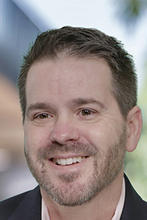
Shane Caswell, professor of athletic training in the School of Kinesiology in CEHD and founding director of the Sports Medicine Assessment Research and Testing Laboratory, is the recipient of The Earle C. Williams Presidential Medal for Excellence in Social Impact. Caswell focuses on the practical implementation of research around critical health care and safety initiatives, particularly around brain health and concussion management. Since joining the Mason faculty, he has used his research findings to improve the health of student-athletes in the Commonwealth of Virginia.
Over a decade ago, Caswell created the ACHIEVES Project, which stands for AdvanCing Healthcare Initiatives for undErserVEd Students to improve concussion education, diagnosis, and management within Prince William County Public Schools. The project has added new dimensions over the years, including increasing the number of athletic trainers in middle schools and preparing them to diagnose and treat concussions on site.
The Virginia Concussion Initiative (VCI) brought together health care providers, school personnel, and researchers to develop electronic resources relating to concussions for schools and parents, including the Neurodiversity Toolkit, which provides guidance about how to address the unique needs of neurodivergent individuals during concussion care. It has been adopted by the Centers for Disease Control as the first toolkit nationally and internationally to address the needs of this specific population.
